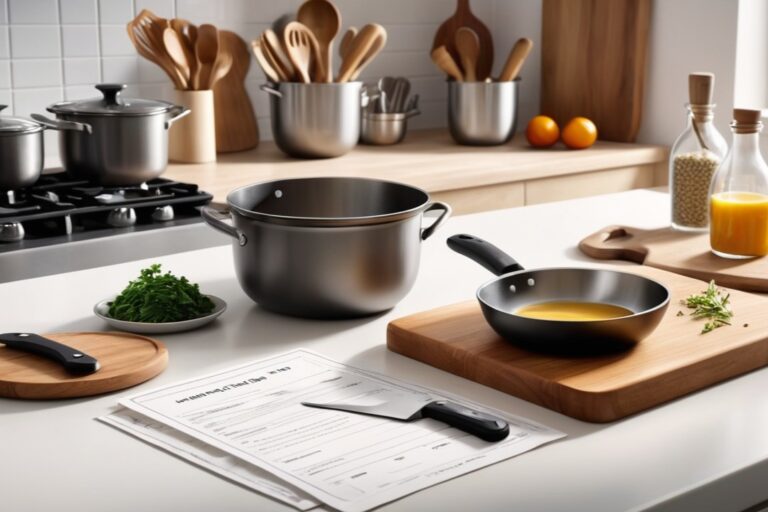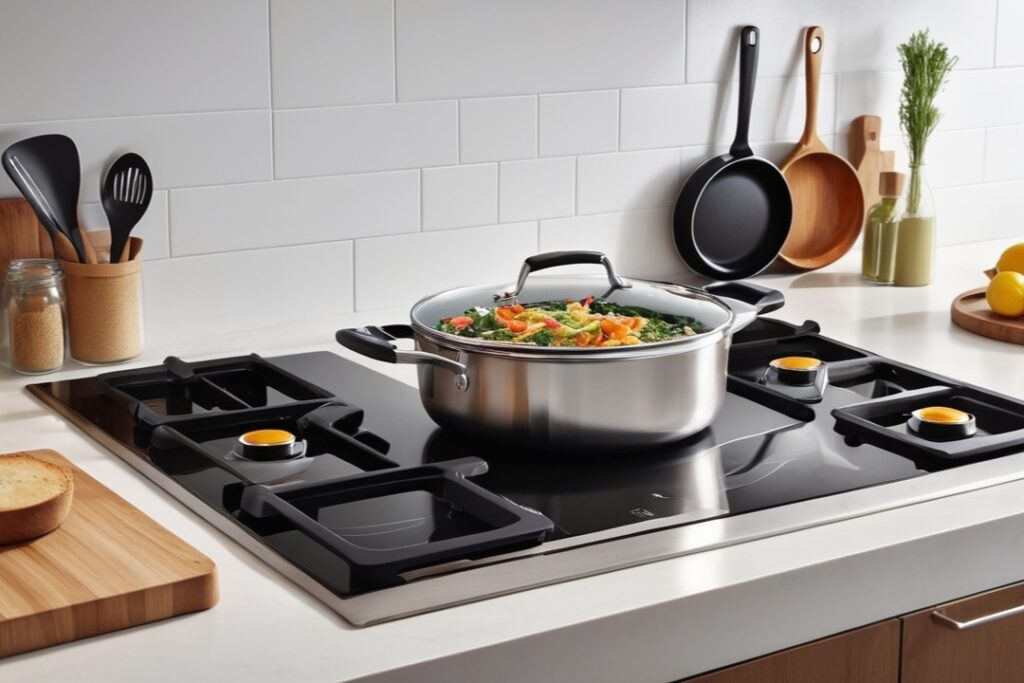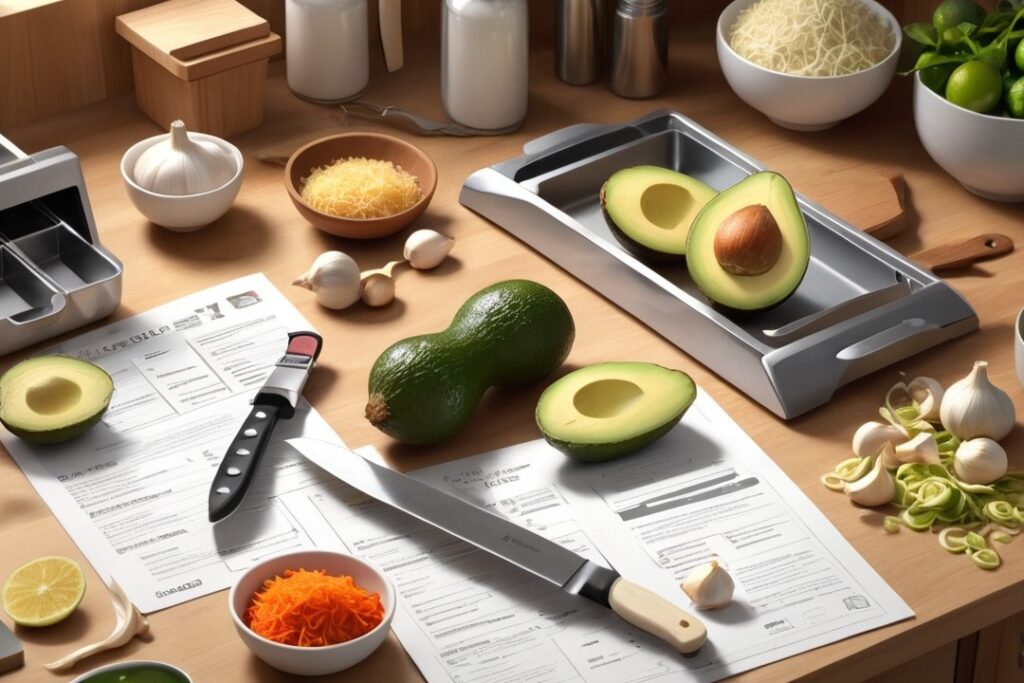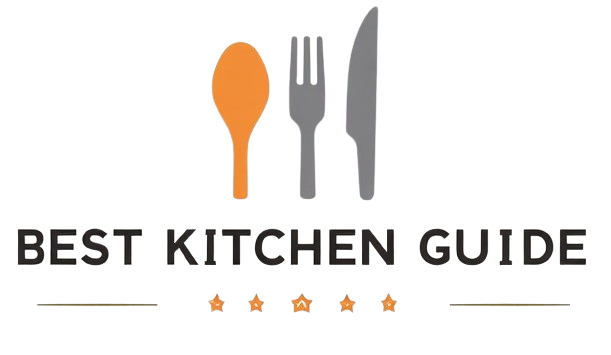Starting in the kitchen? These beginner-friendly essentials will help you cook with confidence, stay organized, and make everyday meal prep easier, even if you are just getting started.

As someone who has outfitted countless kitchens, I can tell you: starting with the right tools is more important than having every tool. The key is choosing quality over quantity, function over flair. This guide from Best Kitchen Guide breaks down the must-haves so you can build a setup that supports your growth from day one.
Let us start with the essentials that every beginner truly needs. But first-
Understanding what counts as kitchen essentials for beginners can make a huge difference in your cooking experience. These are the core tools and equipment you need to prepare, cook, and clean up everyday meals. When you choose practical, well-made items, you can cook with greater ease and confidence.
A beginner’s kitchen should be stocked with tools that serve multiple functions and last a long time. Rather than getting caught up in trendy gadgets, focus on items that will help you chop, mix, cook, bake, and store your food efficiently. The right tools not only simplify the process but also boost your confidence as a home cook.

Your cookware forms the foundation of your kitchen. Start with a medium saucepan, a nonstick or stainless steel frying pan, and a stockpot. These three pieces alone will allow you to cook a variety of dishes, from soups and stews to sautés and sauces.
A medium-sized saucepan is perfect for boiling pasta, cooking rice, or heating soup. A large frying pan lets you sear meat, fry eggs, or stir-fry vegetables. For larger meals or when cooking in batches, a stockpot is invaluable. Add a baking sheet and a medium baking dish to cover your roasting and baking needs.
Once you have your cookware, the next step is collecting the utensils you will use daily. Every kitchen needs a dependable chef’s knife for chopping and slicing. You will also want a paring knife for delicate work and a serrated knife for slicing bread or tomatoes.
In addition to knives, gather a wooden spoon for stirring, a silicone spatula for mixing and scraping, and a pair of tongs for flipping food. A whisk comes in handy for sauces and dressings, and a ladle is useful for serving soups or stews. These tools are the workhorses of your kitchen and make cooking smoother and more efficient.
A few smart gadgets can go a long way in simplifying food prep. Measuring cups and spoons help you follow recipes accurately. A vegetable peeler speeds up prep time, and a can opener is a must-have in any kitchen.
Cutting boards are another necessity. Keep at least two—one for produce and another for raw meats. This helps prevent cross-contamination. A colander is essential for draining pasta or rinsing vegetables, and a grater or microplane can be useful for cheese, zesting citrus, or even mincing garlic.
Storage may not seem essential at first, but it plays a huge role in keeping your kitchen functional. Start with a set of airtight containers to store dry ingredients like flour, sugar, and rice. Glass or BPA-free plastic containers are excellent for leftovers.
Spices are easier to manage when stored in labeled jars or a spice rack. Keeping your kitchen organized saves time and stress, especially when preparing meals quickly.
It is tempting to buy everything at once or pick up cheaper versions of kitchen tools, but this often leads to frustration. Low-quality tools break easily and can discourage you from cooking altogether.
Instead, focus on buying fewer, better-made items. A single high-quality chef’s knife can outperform an entire cheap knife set. Similarly, one good skillet will serve you better than three poorly made ones. Stainless steel and cast iron cookware last a lifetime if cared for properly. Nonstick pans are convenient but should be used with care and replaced every few years.
To simplify your selection process, think in categories. Start with your cooking and baking tools—saucepans, frying pans, and baking dishes. Then add mixing bowls and measuring equipment. For food prep, make sure you have sharp knives, cutting boards, peelers, and mixing tools. Do not forget cleaning and storage supplies, like dish soap, sponges, and towels, as well as containers for leftovers.
This approach ensures that your kitchen setup covers all the essential activities, from prepping to cooking to cleaning.
Begin with versatile tools that match your go-to recipes. If you plan to cook pasta often, prioritize a stockpot and colander. If you enjoy stir-fries, a good skillet and tongs are must-haves. Choose items that can be used for several types of meals.
Shop smart by looking for starter kits that include the basics. Sales and bundles can help stretch your budget. Focus on quality for the most-used tools—especially knives and pans.
Once you have gathered your tools, take time to organize your kitchen. Place frequently used items within easy reach. Group similar tools together, such as keeping your prep tools near the cutting board area and storing your cooking utensils close to the stove.

Common Mistakes to Avoid
Many beginners make the mistake of overbuying. You do not need a drawer full of obscure gadgets that only serve one purpose. Focus on versatile tools first and add specialized items as needed.
Another mistake is buying tools based on trends rather than practicality. Always ask yourself whether a tool will be used regularly. A spiralizer might look fun, but if you rarely eat zucchini noodles, it may collect dust.
Avoid low-quality tools that break easily or underperform. They can make cooking more frustrating and less enjoyable. Also, remember to learn how to maintain your tools properly. A sharp knife, for instance, is much safer than a dull one.
Expert Recommendations
At Best Kitchen Guide, we recommend beginning with the following core items:
Start with a sharp chef’s knife—it is the most used and most important item in any kitchen. Pair it with a nonstick skillet for easy cooking and cleanup. Add a medium saucepan and a stockpot to handle a wide range of recipes.
For utensils, begin with a wooden spoon, spatula, tongs, whisk, and a measuring set. These items help with everything from mixing to flipping to serving. Include a couple of quality cutting boards and some airtight storage containers to keep your kitchen neat and your food fresh.
Frequently Asked Questions (FAQ)
Conclusion
Starting your kitchen from scratch does not have to be daunting. With the right tools, you can cook meals confidently and enjoyably. Focus on core kitchen essentials for beginners—reliable cookware, essential utensils, and a few helpful gadgets. Choose quality over quantity and build your setup gradually as your skills grow.
With guidance from Best Kitchen Guide, you can turn your kitchen into a space where creativity and flavor thrive. Begin your cooking journey today by choosing tools that make every meal a joy to prepare.

Whether you’re selling or staying, everyone can get something out of a kitchen update. Learn why we consider this renovation the Most Valuable Project of 2025 and how to stay on budget.

Hi, I’m Kyler Halvorson—a home kitchen advisor dedicated to helping beginners create simple, efficient kitchens. I share practical tips and tools to help you cook with confidence from day one.
Best Kitchen Guide offers expert tips and product reviews to simplify your cooking experience. From cookware to appliances, we help you build a smart, efficient kitchen.

Best Kitchen Guide offers expert tips and product reviews to simplify your cooking experience. From cookware to appliances, we help you build a smart, efficient kitchen.
Copyright 2025 Best Kitchen Guide, all rights reserved .